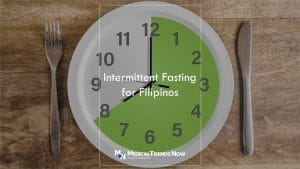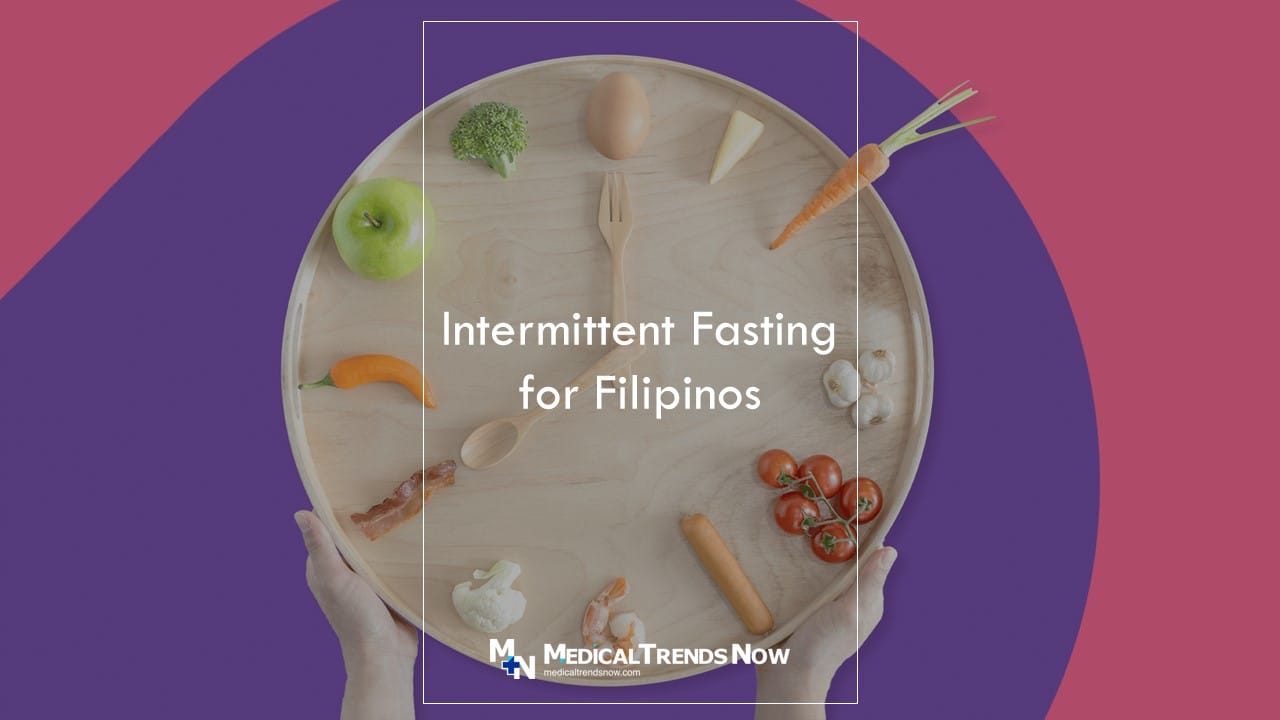Table of Contents
How to intermittent fast for weight loss is an article guide intended for Filipinos who are planning to have a healthy lifestyle.
A lot of Filipinos these days are into intermittent fasting for weight loss. And it’s no wonder – this type of fasting has been shown to be highly effective in helping people lose weight and burn fat.
But if you’re new to intermittent fasting, or if you’ve been doing it for a while but haven’t seen the results you want, then this guide is for you. In it, we’ll walk you through everything you need to know about intermittent fasting for weight loss, including the best way to do it, what foods to eat, and how to avoid common mistakes.
What is Intermittent Fasting?
Intermittent fasting is an eating pattern where you cycle between periods of eating and fasting. It’s a popular way to lose weight because it’s said to help you burn more fat.
There are lots of different ways to intermittent fast, but the most common method is to eat normally for five days a week and then fast for two days. During your fasting days, you don’t eat anything except water and black coffee.
Some people also allow themselves a small number of calories on their fasting days, such as 500 or 1000 calories.
How to Intermittent Fast for Weight Loss?
Intermittent fasting is a pattern of eating that alternates between periods of fasting and eating. There are many different ways to intermittent fast, but the most popular version is the 16:8 method. This means you fast for 16 hours and then eat during an 8-hour window.
There are a few things to keep in mind when intermittent fasting for weight loss.
First, make sure you’re drinking plenty of water and hydrating throughout the day. You may also want to consider adding electrolytes to your water, especially if you’re working out during your fasting period.
Second, ensure you’re fueling your body with healthy Filipino foods during your 8-hour eating window. This means filling up on lean protein, healthy fats, and complex carbs rather than processed foods and sugary snacks. And finally, be patient!
How Does Intermittent Fasting Work for Filipinos?
Intermittent fasting has been around for centuries, but it’s gaining popularity in the Philippines as a way to lose weight and improve health. During intermittent fasting, Pinoys eat normally some days and restrict their food intake to a specific window of time on other days.
This approach can help Filipinos lose weight, reduce inflammation, and lower their risk of chronic diseases. Here’s how intermittent fasting works and how you can start incorporating it into your lifestyle.
Benefits of Intermittent Fast for Weight Loss in the Philippines
Intermittent fasting is an effective way to lose weight and belly fat.
When you fast intermittently, your body is forced to use stored energy rather than the food you’ve just eaten.
This causes your body to burn more calories and helps you lose weight and belly fat.
Intermittent fasting is also a great way to reduce inflammation in the body, which can lead to other health problems.
Intermittent Fasting For Pinoys Has Health Benefits Beyond Weight Loss
Intermittent fasting diets have become popular in recent years as a way to lose weight and improve health. While all the different types of intermittent fasting diets vary, they all involve cycles of fasting and eating. Some people fast for 16 hours a day, while others fast for one day a week.
So far, most of the research on intermittent fasting has been done in the West. However, some studies suggest that intermittent fasting may have health benefits beyond weight loss. For example, one study found that intermittent fasting improved blood sugar control and reduced inflammation in people with diabetes. Another study found that intermittent fasting helped reduce cholesterol levels and improve heart health in people with prediabetes.
More research is needed to determine whether intermittent fasting is safe and effective for Filipinos.
Is Intermittent Fasting Safe for Filipinos?
Intermittent fasting, a dieting trend that involves going without food for short periods of time, has been gaining popularity in the Philippines. Proponents of intermittent fasting say that it can help you lose weight and improve your health. But is intermittent fasting safe for Pinoys?
There is no definitive answer to this question. Some Filipino medical experts believe that the approach to intermittent fasting is safe for most people, while others think that it may not be suitable for everyone. Before starting an intermittent fasting regimen, it is important to consult with a doctor to find out if it is right for you.
There is some debate over whether intermittent fasting is safe for Pinoys. Some Pinoys believe that fat loss programs and whole-day fasting may be harmful because Filipinos are more likely to have diabetes and heart disease.
However, there is no evidence that intermittent fasting is unsafe for Filipinos. In fact, there are several studies that show that intermittent fasting may work and can be beneficial for people with diabetes and heart disease.
What Can a Filipino Eat While Intermittent Fasting?
Intermittent fasting has been gaining popularity as a way to lose weight and body fat to get healthy. But what can a Filipino eat while intermittent fasting? Here are some of the best options:
- Brown rice and fish or chicken adobo. You can eat this classic Pinoy dish that is both nutritious and satisfying.
-
Tinola soup. Many Filipinos choose to eat this hearty comfort food. This soup is made with chicken, ginger, malunggay leaves, and green papaya and is perfect for a quick and healthy meal.
-
Vegetable stir-fry with brown rice. This dish is packed with veggies and fiber, making it perfect for a fast-paced lifestyle.
-
Fruit smoothie bowl. If you will not skip breakfast, well, this option is healthy and delicious. Perfect for those on the go.
-
Chicken satay with peanut sauce.
It is crucial for Pinoys to consult a dietician, nutritionist, or family doctor before starting intermittent fasting. Because fasting isn’t for everyone. There are different ways to do intermittent modified fasting. IF is a way to manage your weight, but fasting is about as effective as the doctor recommends.
What to Consider in Choosing Intermittent Fasting Plan for Filipinos
Intermittent fasting is an increasingly popular diet plan that involves eating during a specific time window and fasting for the remainder of the day. There are a few different intermittent fasting plans, but the most common one is to fast for 16 hours and eat during an 8-hour window. Proponents of intermittent fasting say that it can help with the amount of weight loss and other health benefits. But is intermittent fasting right for you?
There are a few things to consider before deciding if intermittent fasting is right for you.
First, intermittent fasting may not be appropriate if you have a history of disordered eating or are struggling with an eating disorder.
Additionally, if you’re pregnant or breastfeeding, you should not do intermittent fasting.
If you’re considering intermittent fasting, be sure to speak with your doctor first to get their input.
How Can a Filipino Suppress Hunger During Fasting?
Hunger is a sensation that almost all of us experience from time to time. Even the British singer Adele had this feeling during her weight loss program. It can be caused by many factors, such as skipped meals, dehydration, or even stress. While hunger is uncomfortable, it’s not usually dangerous. However, for some people who are trying to lose weight, hunger can be a major obstacle to success. If you’re doing intermittent fasting to lose weight, here are a few tips for suppressing hunger:
Drink plenty of fluids. Thirst can often be mistaken for hunger, so drinking lots of water or other calorie-free beverages can help suppress your appetite.
Eat plenty of protein and fiber. Protein and fiber are both known to help suppress hunger. Try eating high-protein foods like lean meat, eggs, nuts, and seeds, and high-fiber foods like fruits, vegetables, and whole grains.
How Can Filipinos Overcome Low Energy or Low Focus During Fasting?
There are a few things that a Filipino can do to combat feelings of low energy or low focus during intermittent fasting.
One is to make sure that they are drinking plenty of water and other fluids.
Another is to ensure they are eating enough protein and healthy fats.
And finally, they can try to get adequate sleep and exercise.
Can Filipinos Have Alcohol While Intermittent Fasting?
This is probably the most asked question since Asians in general love to drink their rum, wine, gin, and beers at night. Remember that some alcoholic drinks have a weight regain impact on your body, especially those San Miguel beers.
There are many Filipinos who are looking to intermittent fasting for weight loss. But wanted to continue drinking their favorite spirits. This type of fasting has been shown to be very effective at helping people lose weight and keep it off.
But, can a Filipino have alcohol while intermittent fasting? The answer is yes; a Pinoy can have alcohol while intermittent fasting. I presume that you are smiling from ear to ear. If you choose to fast, you can still drink in moderation… BUT (yeah, it is a big bold BUT), you can’t have in the large amount.
It is important to note that alcohol can interfere with the weight loss benefits of intermittent fasting. If you are trying to lose weight, it is best to avoid drinking alcohol altogether.
However, if you do choose to drink alcohol while intermittent fasting, it is important to do so in moderation.
5 Types of Intermittent Fasting to Consider by Filipinos
There are different types of intermittent fasting that are effective for weight loss Filipinos can do to help them lose weight. Here are seven types of intermittent fasting to consider for Filipinos:
1. The 16/8 Method:
This type of fasting window requires you to fast for 16 hours and then have an 8-hour eating window. This is a great option if you want to break your fast slowly throughout the day.
2. The 5:2 Diet:
On this diet, you will eat normally for five days per week and then restrict your calorie intake to 500-600 calories on the other two days.
3. The Eat-Stop-Eat Diet:
This diet involves going 24 hours without food once or twice per week.
4. The Warrior Diet:
On this diet, you will only eat one large meal per day and fast the rest of the day.
5. The Fast Diet:
This diet involves eating a single meal daily while fasting on the other days of your healthy diet.
These are some of the ways to do intermittent fasting for Filipinos.
Different Types of Intermittent Fasting for Pinoys
Intermittent fasting is an eating pattern where you cycle between periods of eating and fasting. There are different forms of intermittent fasting for Filipinos, depending on your goal.
If you’re looking to lose weight, there are a few different types of intermittent fasting you can try.
One of the different methods of intermittent fasting is 16:8. Intermittent fasting involves fasting for 16 hours each day and eating during the other 8 hours. Alternate day fasting requires you to fast every other day, while 5:2 intermittent fasting means you eat normally for five days and then fast for two days.
Whichever type of intermittent fasting you choose, be sure to drink plenty of water and avoid processed foods. Eating healthy foods will help keep your energy levels up and make the process easier.
Some Pinoys find intermittent fasting ideal, but some are not because they are implementing the wrong type for their weight and metabolic system. It is recommended that a typical low-calorie diet for weight loss be consulted by a Filipino doctor before starting a plan of action. Intermittent fasting can have unpleasant side effects, so it’s imperative to consult your Filipino doctor.
Disadvantages of intermittent fasting
Intermittent fasting is a dieting trend that has been gaining popularity in the Philippines. Proponents of intermittent fasting claim that it is a more effective way to lose weight than traditional dieting and that it has other health benefits as well.
However, the effects of intermittent fasting have potential disadvantages of intermittent fasting that should be considered before starting this type of diet.
First, intermittent fasting can be difficult to stick to. It can be hard to go for long periods of time without eating, and many people find it difficult to resist the temptation to cheat on their diet.
Second, intermittent fasting may not be appropriate for everyone. It can be risky for people with diabetes or other metabolic health conditions, and it is not recommended for pregnant women or nursing mothers.
Third, intermittent fasting also may not be as effective as claimed by some journals.
Best and Worst Diet Programs According to Filipino Dietitians
There are countless diets out there that claim to help you lose weight quickly and sustainably, but not all of them are created equal to Filipinos.
Pinoy registered dietitians have weighed in on the best and worst diets for sustained weight loss. Unsurprisingly, the ones that topped the list were generally healthy, balanced diets that included plenty of fruits and vegetables.
At the top of the list was the Mediterranean diet, which is high in healthy fats like olive oil and nuts, as well as whole grains and fresh fruits and vegetables. Studies have shown that the Mediterranean diet is one of the most effective ways to lose weight and keep it off long-term.
Closely following behind was the DASH diet, which is designed to lower blood pressure by reducing salt intake and increasing the intake of fruits, vegetables, and whole grains.
The worst diet programs are self-made action plans without consulting your Filipino dietitians and doctors. So before going on a diet, ensure that you consult your Pinoy doctor.
Reasons It’s Harder for Filipinos to Lose Weight When They Age
It’s no secret that weight gain becomes progressively harder to manage as Filipinos age. That is why weight maintenance is essential.
But what are the specific reasons why it’s harder to lose weight as Pinoys get older?
A big part of the problem is that our metabolisms naturally slow down as we age. This means that our bodies require fewer calories to function, and so we can easily gain weight if we’re not careful.
Another reason why it’s harder to lose weight with age is that our muscle mass decreases over time. Muscle burns more calories than fat does, so when we lose muscle, our metabolic rate drops, and it becomes even harder to shed excess pounds.
Aging also brings about a decline in hormone levels, including testosterone and human growth hormone (HGH).
The older you get, the harder it becomes to lose weight. You might think that as you age, your metabolism slows down and makes it easier to put on weight. But in reality, the number one reason why it’s harder to lose weight as you get older is that your body composition changes. Muscle mass decreases, and fat mass increases, which means you have a higher percentage of body fat and less muscle. This makes it more difficult to burn calories and lose weight.
Another reason why it’s harder to lose weight as you age is that your hormones change. The levels of certain hormones, like leptin and ghrelin, which regulate hunger and appetite, change as you get older. This can make it more difficult to control your food intake and maintain a healthy weight.
As Pinoy gets older, their body also becomes less efficient at using energy. Adults can try intermittent fasting upon the approval of their primary dietician, nutritionist, or family doctor.

Who Should Not Fast: Fasting Precautions To Filipinos
There are a few things to keep in mind if Filipinos are planning on fasting.
Fasting is not recommended for pregnant women, children, people who are underweight or have eating disorders, those with diabetes or any other chronic illness, and those taking medication.
- Pregnant and breastfeeding women should not fast for more than 12 hours at a time.
- Children should not fast for more than eight hours. If you have an eating disorder, consult with a doctor before fasting.
- If you have diabetes or another chronic illness, consult with your doctor before fasting to see if it’s safe for you.
- If you’re taking medication, consult with your doctor to see if it’s safe to fast.
Is Intermittent Fasting The Best Diet for Weight Loss?
Intermittent fasting is becoming an increasingly popular diet trend, and for a good reason – it may be the best way to lose weight for Filipinos.
When you intermittent fast, you cycle between periods of eating and fasting. This approach helps you burn more fat because your body has to work harder to break down food during the fasting periods.
In addition, intermittent fasting can help you control your appetite and eat fewer calories overall. If you’re looking to shed pounds, intermittent fasting is a great option – give it a try!

Tips for Maintaining Intermittent Fasting
Intermittent fasting, or IF, is an eating pattern that cycles between periods of fasting and eating. There are a few different ways to do IF, but the most common is to fast for 16 hours and then eat during an 8-hour window. IF can be a great way to lose weight because it helps you burn more calories and lose fat. Here are some tips for maintaining intermittent fasting:
1. Make sure you’re eating enough protein.
Protein is important for maintaining muscle mass and preventing hunger during your fasting period. Shoot for at least 0.4 grams per pound of body weight each day.
2. Drink plenty of water and other fluids.
Dehydration can lead to headaches, fatigue, and other unpleasant side effects during your fasting period. Drink plenty of fluids throughout the day to stay hydrated.
3. Avoid strenuous exercise during fasting.
While exercising can help you burn fat, it can also lead to headaches, rapid heart rate, and other symptoms of dehydration. You may consult your Pinoy doctor before going to the gym.
4. Get enough rest.
Try to get at least a window of 8 hours of sleep each night, especially during the fasting period. Longer fasts can lead to illness and other side effects.
5. Support your liver and digestive system.
Take a digestive enzyme with each meal that contains protein. Fasting is a way to better health, so support your liver and digestive system with proper nutrition. Avoid spirits and alcoholic beverages while fasting.

Can a Pinoy Continue to Visit the Gym and Work Out While Fasting?
Some people worry that they can’t work out while intermittent fasting. But this doesn’t have to be the case.
In fact, many people find that they have more energy and better workouts or during a Zumba class when they intermittent fast.
Intermittent fasting is generally taking baby steps. Start slowly and seeing how your body responds.
You may need to adjust your workout routine a bit at first, but eventually, you should be able to maintain your usual routine.
But again, we reiterate that Pinoys must consult their family or GP doctors before going to the gym.
What Should a Filipino Do to Flatten Their Belly?
There are many things that people do in order to try and get a flat belly.
One of the most popular is intermittent fasting. This is when you restrict your eating to a certain number of hours each day, or you fast completely for a set number of days each week.
There are different ways to do this, but the goal is always the same: to lose weight. Intermittent fasting can be a great way to jump-start your weight loss journey, and it can help you see results quickly.
But it’s important to note that it’s not for everyone. If you have any medical conditions, or if you are pregnant or breastfeeding, then you should speak with your doctor before starting an intermittent fasting regimen.
Another way to achieve a flat belly is through exercise.

How much weight can you lose in a month with intermittent fasting?
Intermittent fasting has become a popular weight loss strategy in Asia, particularly in the Philippines.
Proponents of intermittent fasting claim that you can lose weight quickly and easily by following this diet plan. But is this really true? And how much weight can you realistically expect to lose in a month?
There is some evidence that intermittent fasting can help you lose weight. One study found that people who followed an intermittent fasting diet lost 3–8% of their body weight over a six-month period. Harvard School of Public Health reported that people can lose weight by one pound per week.
However, it’s important to note that not everyone will lose weight when following an intermittent fasting diet. Some people may actually gain weight. So how much weight can you realistically expect to lose in a month if you follow an intermittent fasting diet? Most people will probably lose somewhere between 2–4 pounds per month.
Conclusion: How to Intermittent Fast for Weight Loss, a Filipino Ultimate Guide
In conclusion, intermittent fasting for weight loss in the Philippines is a great way to achieve the weight loss goals of Filipinos. By following these popular approaches to intermittent fasting tips, Filipinos can lose weight in a healthy and sustainable way. Be sure to drink plenty of water, eat plenty of vegetables, and get enough sleep. And most importantly, have patience and stick with it! It is highly recommended that Pinoys must consult their doctor before going on an intermittent diet plan.

Sources:
- The Johns Hopkins University, The Johns Hopkins Hospital, and Johns Hopkins Health System – Intermittent Fasting: What is it, and how does it work?
- Mayo Clinic – Intermittent fasting: Fad or valid weight-loss solution?
- Harvard T.H. Chan School of Public Health – Diet Review: Intermittent Fasting for Weight Loss
- National Library of Medicine – Intermittent fasting and weight loss
- Cleveland Clinic – Intermittent Fasting: How It Works and 4 Types Explained













